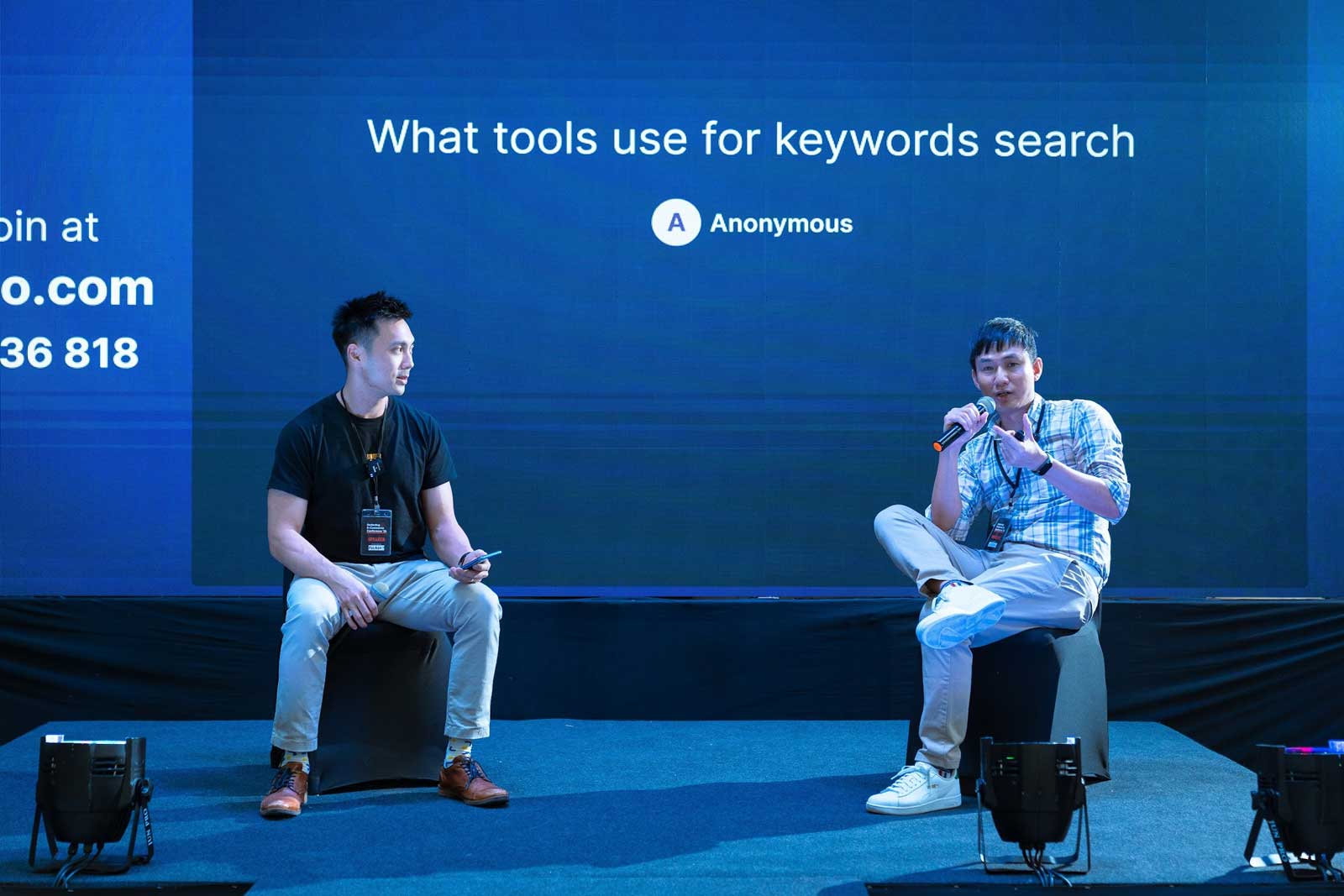Winning with SEO in 2024 with April Cheong, Growth.Pro
8 things we've learned speaking to SEO strategist, April at Growth.Pro. Free keyword research template included!

In this interview, we spoke to April Cheong, senior SEO strategist at Growth.Pro. Growth.Pro is a 20+ man SEO agency specializing in Search Engine Optimization (SEO) that has been growing fast in the past few years.
Key takeaways:
- What works for SEO in 2024
- What MOST businesses do wrong with SEO
- Tips on building an SEO agency
Before we get into it, I know you'll be curious about SEO tools & software, Growth.Pro uses as an SEO agency. So here you go:
Watch the interview:
My takeaways from the interview below.
1/ Specify the customers you serve
Growth.Pro didn't always work with big clients. They started their agency working with smaller clients.
But as they grew, they had to make a decision: Focus on servicing smaller brands, and go for volume. Or serve bigger brands, and increase billing size.
They ended up choosing to serve larger brands. To filter their clients, they set a base retainer fee that only medium to large brands can afford.

They were very clear who their target market was, and this gave them clarity on ways to reach them. A common mistake is not specifying who your ideal customer is and so, not having a clear way to reach them.
2/ SEO is NOT a one-person job
SEO is a LOT of work. That's also why it isn't cheap.
Here's Growth.Pro's team set-up:
- SEO Strategist: These guys sit between clients and the team. They talk to clients, understand the goal, create SEO strategies, and manage SEO campaigns.
- Content Writer: Writers are in charge of writing SEO-structured content.
- SEO Assistant: Assists strategists by executing SEO-related tasks, including analyzing and creating reports.
- Web Developer: Implements everything tech-related and does on-page SEO.
- Graphic Designer: Designs graphic images and art to support SEO content.
Expecting one person to do everything above will be tough.
But what if you can't afford to hire a team focusing on SEO? That's where Growth.Pro comes in.

If you plan to do SEO in-house, use the Pareto Law. Focus on the 20% that will bring 80% results. For SEO, that is focusing on content.
3/ SEO is about matching search intent
Google's search algorithms change all the time. But why people search on Google remains the same.
No searcher goes on Google searching for backlinks.
They search for information. Information comes from websites and blogs.
Thus, a big part of SEO is about creating content that matches a search intent.
Here are what NOT to do with SEO:
- Create content that has no purpose, for the sake of ranking.
- Using AI tools to mass-generate content, for the sake of SEO.
The rule of SEO is simple: Create content that people want to find.
Let's say you're in the market to buy an iPhone. You're short on budget, so you search for "cheap used iPhone" on Google.
What would you expect to find? A list of prices and available used iPhones that you can compare immediately. You don't want a 3,000-word blog post detailing the iPhone, the specs, make, build, review, etc.
Yet, that's what many "SEO gurus" ask you to do. Write a 3,000-word content!
Google is about showing content that BEST matches a search intent.
4/ How to create SEO content for B2B businesses
If you're in the business of oil rig systems, what type of content would you create?
One thing's for sure, not a listicle titled, "10 best oil rig systems". Because nobody would be interested in reading that.
Start by understanding your customer.
- What are his fears?
- What is his pain?
- What kind of information would he need to know about oil rigs?
Usually, there are two types of content you can create:
Broad content
People who purchase oil rig systems might want to be updated about what's going on in the oil & gas industry.
If so, you could create industry reports, and case studies or share updated news as content – driving traffic to your website and growing awareness around your brand.
Targeted content
Or help potential customers with decision-making.
This could mean publishing information about industry certifications or sharing product details.
5/ Don't mass generate content with AI
Artificial Intelligence (AI) is amazing.
You can do so many things with it – generate ideas, analyze data, etc. But not generating mass content for SEO with it.
- AI can produce hallucinated answers.
- It doesn't fact-check.
You probably be able to build organic traffic, if you start posting AI-generated content – mainly because of the content volume. But over the short run, most AI-generated content gets penalized by Google, because it doesn't provide any real, authentic value.
6/ Everyone can benefit from SEO
Almost every company I talk to wishes they had done SEO earlier.
Take the case of E-Commerce companies. Many of them focus on live selling and paid advertising on social media platforms.
Should they care about SEO?
The answer is yes.
Social media generates interest on an awareness level. But SEO will still come in on a product level. Here's an example:
A prospect might come across a product on social media, scroll past and forget about it. A few days later, he thought about the product and searched on Google. Boom. SEO!
So, it's not a matter of which platform to use. It's HOW to be present throughout the customer journey.
7/ How to acquire clients as a new agency
Repeat after me: "Paid advertising is not the only way"
Growth.Pro does not do any paid advertising. That's not something to brag. But they have a different client acquisition strategy.
Few years back, as a new agency brand, nobody knew them. So, to access bigger brands, they partnered with big agencies, providing SEO work as a sub-contractor.
These are award-winning agencies that usually cover full-service marketing. And they tend to outsource specialized work, like SEO. This is where Growth.Pro comes in.
This was how Growth.Pro built their portfolio so quickly. Today, with their impressive portfolio, they go direct to brands as well.

Here's a complete list of how Growth.Pro acquires clients:
Become a sub-contractor: Growth.Pro partners with many agencies, acting as their SEO arm to gain access to brands.
Word of mouth: Do an amazing job, and people will naturally refer you to their friends. Include a system to ask your clients for a referral to speed up the process.
Content marketing: Sharing case studies is a strategy that is working well for Growth.Pro. When people see tasty case studies, they become interested in finding out how to do the same for their own.
Search Engine Optimization: As an SEO agency, it's a no-brainer to have your own website ranked.
8/ You can't do everything alone
I've tried building a marketing agency. Failed terribly.
Because it was too dependent on me. I did the writing. The page building. Paid ads. Closing customers. Everything!
All great companies are built up of great people. At Growth.Pro, they:
- Run weekly training for the team.
- Constantly reward team members.
- Strives for work-life balance. (No midnight meetings!)
- Provide opportunities for their people.
